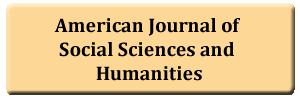Building Scholars Program: Fostering Student Self-Efficacy in Higher Education
DOI:
https://doi.org/10.20448/804.4.2.325.338Keywords:
Hispanic students, Undergraduate research, Faculty support, Student tracking, Graduation rates, Bridge program.Abstract
The goal of the Building Scholars program, funded by the US Department of Education under the Developing Hispanic-serving Institutions Program, is a partnership between Texas A&M International University (TAMIU) and Laredo College (LC) to increase the number of Hispanic and low-income students attaining post-secondary certifications, associate and bachelor’s degrees. It aims to prepare students to compete for positions in graduate and professional schools; thus, increasing the competency and diversity of the minority workforce. Building Scholars consists of carefully chosen activities developed by both TAMIU and LC to achieve the objectives of the program initiatives. For TAMIU, the goal is to engage and retain Hispanic students by implementing well-designed activities through freshman seminars, undergraduate research across disciplines, faculty support, travel, faculty development activities, and a summer research seminar. Faculty support, in terms of travel and equipment, is provided to improve student engagement in their programs of study and furtherance of higher education. The majority of program activities at TAMIU are intertwined with the University’s Quality Enhancement Plan (QEP) to build, integrate, and sustain undergraduate research practices and programs, with an emphasis on applied critical thinking. Students are involved in hands-on mentored activities with faculty in order to identify the various structured outlets where their critical thinking and research skills can be sharpened.



